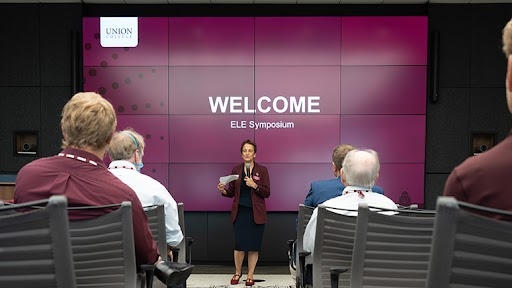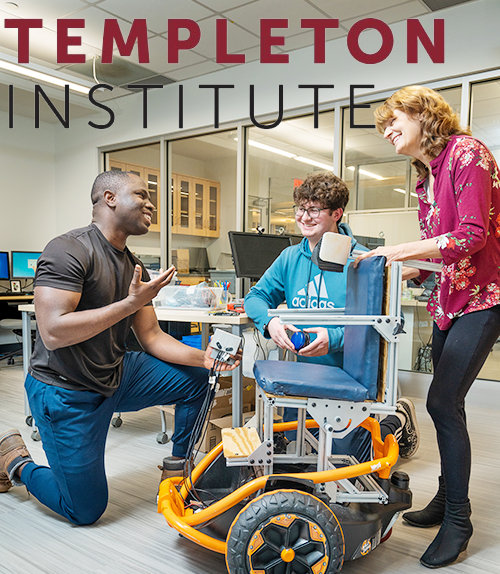
President Kiss welcoming attendees at the Engineering & Liberal Education Symposium.
Tuesday, February 3, 2026: War Games Film Viewing at 7 PM at Proctors Theatre
High school student David Lightman (Matthew Broderick) has a talent for hacking. But while trying to hack into a computer system to play unreleased video games, he unwittingly taps into the Department of Defense's war computer and initiates a confrontation of global proportions. Together with a friend (Ally Sheedy), and a wizardly computer genius (John Wood), David must race against time to outwit his opponent and prevent a nuclear Armageddon.
Kristina Striegnitz (Associate Professor of Computer Science, Union College) will introduce the screening, moderate the Q&A session, and answer questions afterward.
Admission is $7 for students with Union ID, and seniors. Adults are $10.
Tuesday, February 17, 2026: Blade Runner: The Final Cut Film Viewing at 7 PM at GE Theatre at Proctors Theatre
Man has made his match... now it's his problem. In the smog-choked dystopian Los Angeles of 2019, blade runner Rick Deckard (Harrison Ford) is called out of retirement to terminate a quartet of replicants who have escaped to Earth seeking a way to extend their short life spans.
Nick Webb (Associate Professor of Computer Science, Union College) will introduce the screening and answer questions afterward. John Rieffel (Professor of Computer Science, Union College) will moderate the Q&A session.
Admission is $7 for students with Union ID, and seniors. Adults are $10.
Tuesday, February 24, 2026: her Film Viewing at 7 PM at GE Theatre at Proctors Theatre
In the not-so-distant future, Theodore (Joaquin Phoenix), a lonely writer, purchases a newly developed operating system designed to meet the user's every need. To his surprise, a romantic relationship develops between him and his operating system. This unconventional love story blends science fiction and romance in a sweet tale that explores the nature of love and the ways that technology isolates and connects us all.
David Friedell (Associate Professor of Philosophy, Union College) will introduce the screening and answer questions afterward. John Rieffel (Professor of Computer Science, Union College) will moderate the Q&A session.
Admission is $7 for students with Union ID, and seniors. Adults are $10.

Ashok Ramasubramanian and Andrew Burkett
Templeton Institute Co-Directors
Veronica Beswick
Administrative Assistant
(518) 388-7005